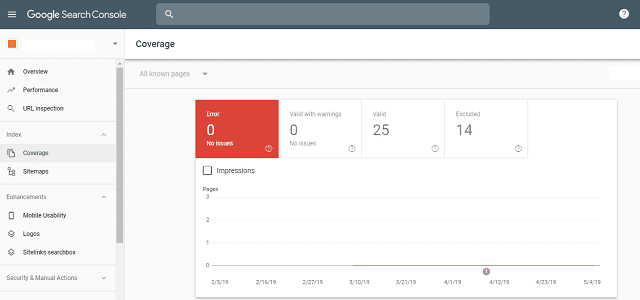How to Check Whether Your Web Page is Indexed in Google

If you’re not in Google Index then how can your customers find you?
A key component to ensuring the visibility of your website with the world’s largest search engine, being included in the Google Index is imperative if you want to achieve any kind of organic growth in SERPs.
In this quick feature, we explain why Google Index is so important and show you how to check if your web pages are included plus we give you some ways you can make sure that Googlebot indexes more of your content.
What is the Google Index?
As the name would suggest, the Google Index is the database used by this search engine to record all of the information required to produce its service.
In short, if the pages of your website are not included within this database then the chances of your content being returned in a search enquiry are next to 0%.
It’s that simple.
Whilst Google uses web crawlers to gather information from billions of pages across the internet, it can only do this accurately if webmasters and developers submit their sitemaps directly to Google.
Whilst crawling alone can produce some ‘titbits’ of information which are added to Google’s Search database, your whole site and its content will be invisible without being properly indexed.
How to Check if Your Web Page is in The Google Index
There are several ways to check if your website (or specific URLs) have been included in the Google Index.
Firstly, you can use the Google Search function itself. By entering the phrase ‘site:’ as a prefix to your website’s domain name (i.e. ‘site:opace.agency’) Google will return a full list of all pages that have been indexed including the details of any Meta Tags.
Alternatively, you can use the Google Search Console to run an Index Coverage Status report. Google will run a quick analysis of those URLs that have been indexed and return a useful set of results which includes any errors, excluded pages or those which have issues. The benefits of using this particular report means that Google gives you further details about the reasons why any particular page is not being indexed. This can be as a result of a specific ‘NoIndex’ tag, duplicate content or 404 errors plus other crawl issues.

Google Search Console lets you check if your site is in the Google Index.
You can also use some free tools offered by sites like Spark Logix, Small SEO Tools (Google Index Checker) or IndexChecking.
How to Get Web Pages Indexed in Google
If you find that some of the pages of your website are not included in the Google Index then there are a number of ways you can have individual pages indexed by Google.
- Use Google Search Console to submit your sitemap. Ensure the page you want indexing is included before you submit it.
- Use internal links. The Google crawlers navigate through your website using internal links and you can help improve the ‘authority’ of one page by linking it with another. In this way, you can share the equity built up in one to boost the SEO potential of an additional page. You should only do this with pages that are related and using relevant anchors.
- Build some high-quality backlinks. Just like with your own website, Google Index uses any html links to produce its database of information and backlinks on sites with a good domain authority will give your URL greater visibility.
- Share the page. In the same way that backlinks and internal links can produce results in Google Index, sharing your URL across sites with high traffic such as Twitter, Reddit or Quora can help boost indexing. You should only do this where the links are relevant and always avoid spamming.
- Block low quality pages. The frequency that Google craws (and indexes) your website is thought to be determined by the quality of your content so it is important that you regularly ‘prune’ the index of your website to ensure that Google is only indexing those pages that boost your domain authority. A good SEO audit should include setting pages to ‘NoIndex’, deleting 404s, using 301 redirects properly and blocking crawlers with a robots.txt file where appropriate.
- Use a Ping. A website pinger notifies search engines that content has been updated and that they should recrawl a URL. The quality of the results from a pinger can vary and not all tools update all search engines. Some useful ping tools are Ping-o-Matic, Twingly and AddUrl.

Make sure your pages are in the Google Index to improve search visibility.
Opace & Achieving Online Visibility
Opace is a specialist digital marketing agency that offers a range of services to help businesses achieve maximum online visibility. From intelligent and responsive web design which boosts SEO to content creation and social media management all of our efforts are made to bring your online message to a wider audience.
To find out more about how Opace can help you achieve your goals for SEO success, contact our team today.
Image credits: JoeTheGoatFarmer/Flickr, Google Search Console and Templune/Pixabay.
« Back to Glossary Index




